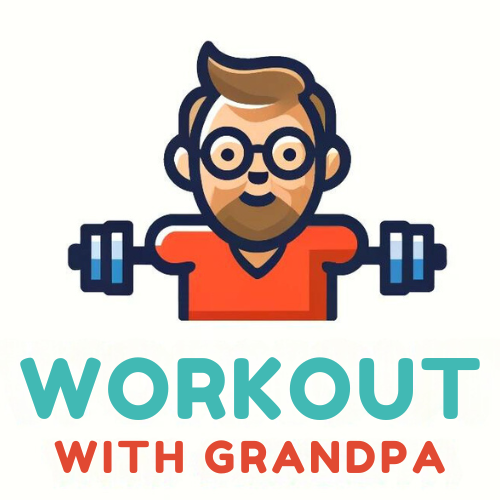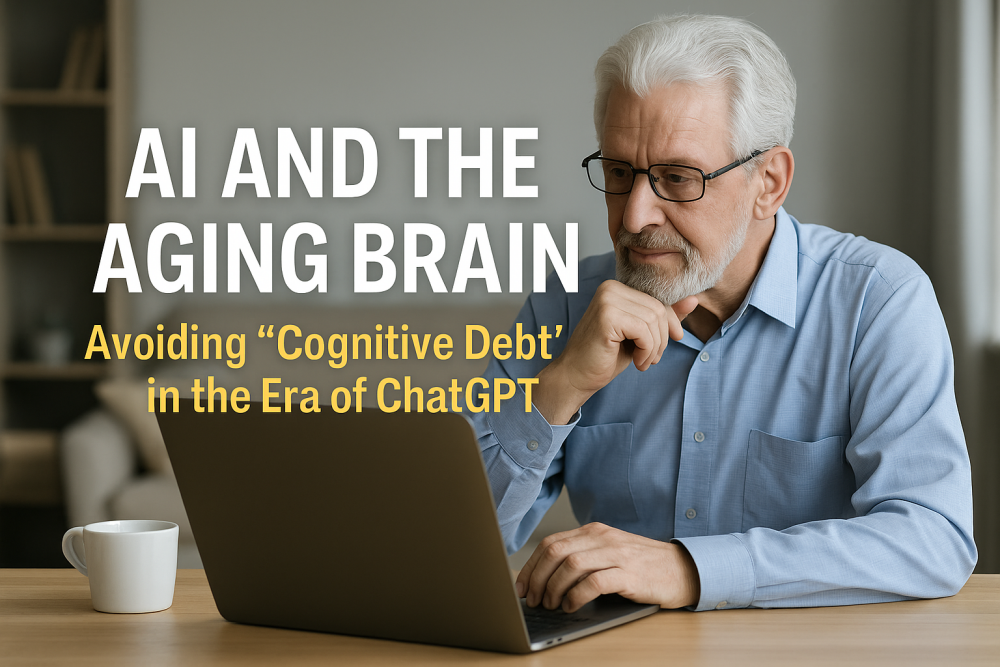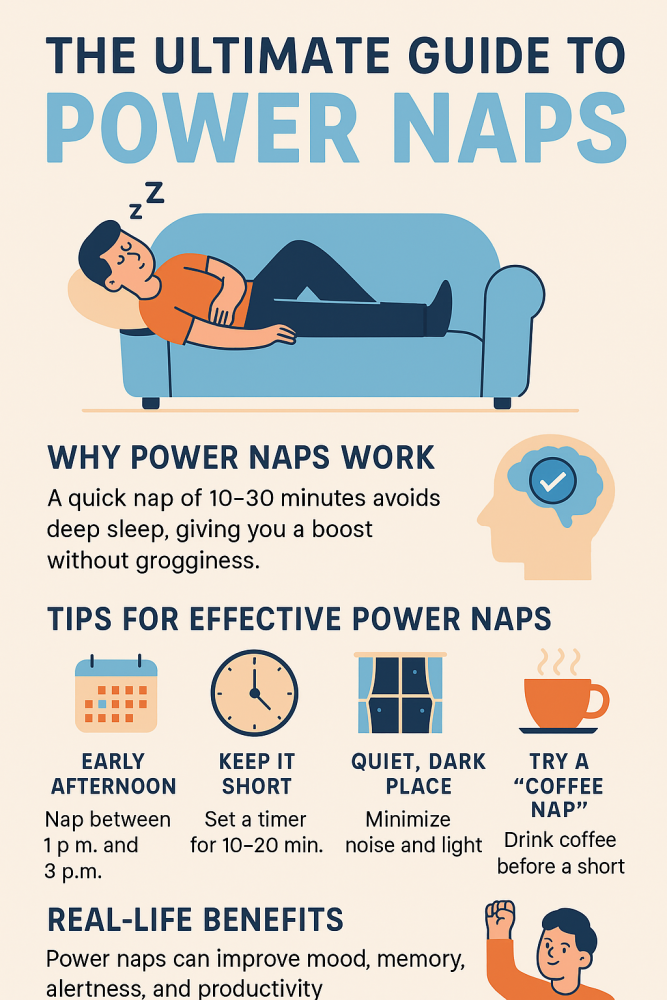AI and the Aging Brain: How to Stay Sharp in the Age of ChatGPT
Imagine writing an email or letter with the help of ChatGPT—then forgetting what you wrote moments later. That might sound extreme, but new research suggests it’s real. A recent MIT study found that 83% of participants who used ChatGPT couldn’t recall a single quote from their writing. Why? Their brains didn’t fully engage—the AI did the heavy lifting. This phenomenon is called “cognitive debt.”
Just like borrowing money racks up financial debt, relying too much on AI can lead to mental debt. It saves effort in the moment but may cost you memory, creativity, and critical thinking over time.
What the Research Shows
MIT researchers divided 54 people into three groups:
- Group 1: Wrote essays with no help (brain-only)
- Group 2: Used a web search engine
- Group 3: Used ChatGPT
They all completed multiple writing sessions while wearing EEG caps to monitor brain activity. In the final round, the groups switched tools.
Key findings:
- The brain-only group had the strongest neural activity
- The search group showed 34–48% lower engagement
- The ChatGPT group had up to 55% less brain connectivity
Even more concerning: 83% of AI users couldn’t quote anything from what they’d just written. They remembered general ideas but not specifics. Many said the content didn’t feel like their own.
When the AI group had to write without help in the final session, their writing was judged less thoughtful, and their brain activity remained muted. It’s as if their mental muscles had weakened after just a few sessions of AI use.
Why This Matters for Older Adults
As we age, our brains benefit from challenge. Cognitive activity helps maintain memory and mental agility. In fact, a large study of over 400,000 older adults found that engaging with technology—when it’s used actively—supports brain health and lowers dementia risk.
But there’s a catch: it’s all about how we use it.
Playing chess online? Video chatting with grandkids? Learning something new through YouTube or an AI assistant? Excellent for your brain.
Letting AI do your thinking, remembering, and creating for you? Not so great. Passive use of AI can rob you of valuable mental workouts, leaving your brain under-stimulated and at greater risk of decline.
Over time, you might start to feel disconnected from your ideas or doubt your own memory and creativity. For older adults—who value independence and life-long learning—this disconnect can be discouraging.
How to Use AI Wisely and Stay Mentally Fit
1. Think before you prompt
Before asking AI for help, take a moment to brainstorm or jot down ideas. This ensures your brain is activated from the start.
2. Collaborate with AI, don’t surrender to it
Use AI to bounce around ideas or improve clarity, but review and revise the results to reflect your own thoughts.
3. Rewrite in your own voice
Even if AI gives you a draft, personalize it. Rewriting helps reinforce memory and strengthens ownership of your ideas.
4. Schedule “brain-only” time
Do tasks without tech assistance—write in a journal, memorize a to-do list, or solve a puzzle. Treat these like mental workouts.
5. Use analog tools now and then
Reading a paperback, sketching, or writing by hand can activate parts of the brain that digital tools skip.
6. Stay critical and curious
Ask follow-up questions. Don’t blindly trust AI’s answers. The more you engage, the more your mind stays sharp.
7. Use AI for learning, not avoidance
Interact with AI as a tutor, quiz partner, or brainstorming buddy. This active use encourages real understanding.
8. Set boundaries on reliance
Designate times or types of tasks where you’ll go AI-free. This helps keep your brain engaged where it matters most.
Final Thoughts
AI is an incredible tool—and when used wisely, it can be a powerful ally for older adults. But balance is key. Avoiding cognitive debt means staying mentally active and engaged, even when it’s tempting to let AI take over.
Think of your brain like a muscle. Use it, challenge it, and it will stay strong. Let AI help you grow—but make sure you’re still doing the lifting.
Sources: MIT Media Lab study on cognitive debt, Psychology Today, Euronews, UT Austin research on tech use in older adults
What are your thoughts on this subject?







Leave a Reply